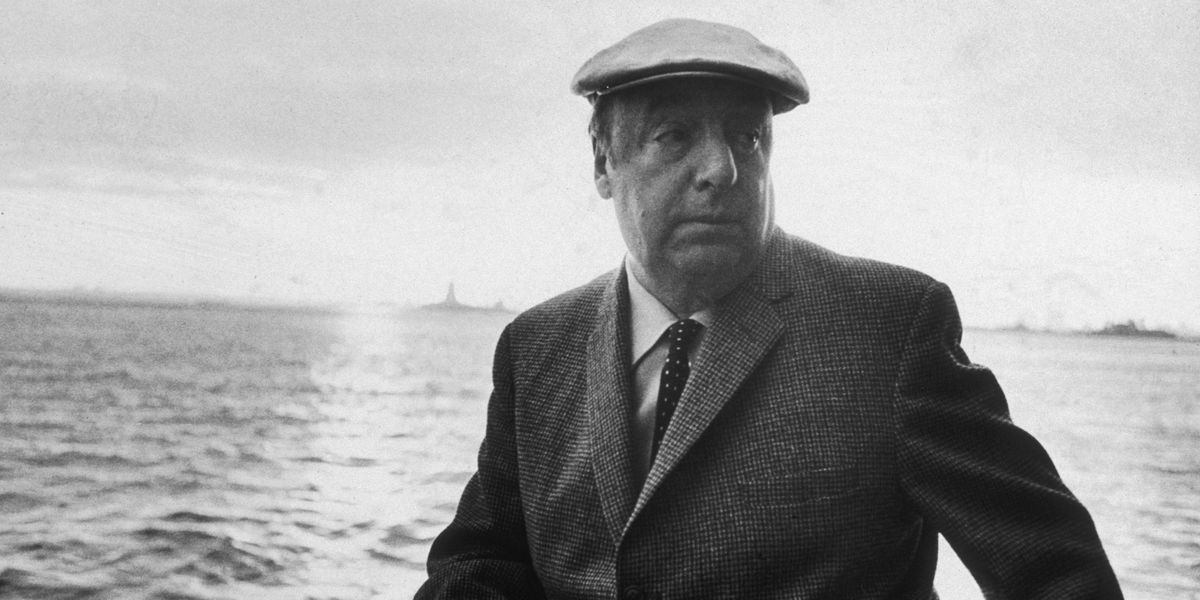
Pablo Neruda, the Chilean Nobel poet laureate, diplomat, and leftist politician who died days after Gen. Augusto Pinochet seized power in a 1973 U.S.-backed military coup, was poisoned to death, his nephew said Monday ahead of the expected publication of a new toxicology report later this week.
The revelation by the nephew, Rodolfo Reyes, confirms long-held suspicions that Neruda—an ardent communist—was murdered in the early days of Pinochet's far-right dictatorship. Reyes told Spain's EFE that laboratory testing showed a "great quantity" of clostridium botulinum—a neurotoxic bacteria that is one of the most poisonous known biological substances—in Neruda's body when he died.
Reyes said that clostridium botulinum "would have no reason to have been in Neruda's bones. What does this mean? That Neruda was murdered, there was an action in 1973 by agents of the state."
"What does this mean? That Neruda was murdered, there was an action in 1973 by agents of the state."
When the Pinochet coup occurred on September 11, 1973, 69-year-old Neruda was hospitalized with prostate cancer. While he was being treated, the poet made plans to go into exile in Mexico, where he had served as Chile's consul-general in the 1940s.
A close friend of Salvador Allende—the democratically elected socialist president who was overthrown by Pinochet's forces with the backing of U.S. military, intelligence, and business organs—Neruda would undoubtedly have been a vocal critic of the right-wing dictator and a major thorn in the regime's side.
Driver and bodyguard Manuel Araya has long said that a distressed Neruda called him from the hospital, claiming that someone injected him in the stomach while he was sleeping. Fearing the worst, Neruda left the hospital on September 23 and died hours later. His official cause of death was listed as the wasting effects of prostate cancer.
However, Gonzalo Martínez Corbalá, the Mexican ambassador to Chile at the time of the coup, said he saw Neruda two days before he died, and that although ill, he weighed 220 pounds, belying official claims of a "wasting" death.
A court-ordered exhumation and analysis of Neruda's remains that began in 2013 and involved forensic scientists in four nations led the Chilean government to announce two years later it was "highly probable that a third party" was involved in the poet's death. In 2017, an international team of scientists said they were "100% convinced" Neruda did not die of cancer.
During the early months of Pinochet's rule, other prominent leftists were arrested, tortured, and murdered in a reign of terror whose victims ultimately numbered in the tens of thousands. The renowned folk singer and guitarist Victor Yara, for example, had his hands smashed by torturers who mockingly asked him to play them a song. Instead, he sang the protest song "Venceremos"—"We Shall Win"—before he was shot more than 40 times.
Neruda, who won the 1971 Nobel Prize in Literature for "poetry that with the action of an elemental force brings alive a continent's destiny and dreams," was called "the greatest poet of the 20th century in any language" by Colombian novelist Gabriel García Márquez, another Nobel laureate.
However, Neruda's legacy has been reevaluated in the #MeToo era, as he described raping a Sri Lankan maid in his memoir. He also abandoned his first wife and only daughter when the child was born with a neurological disorder, and sexist themes in some of his work have been noted. Feminist pressure led Chile's congress to cancel plans to rename the country's main international airport after Neruda.
This content originally appeared on Common Dreams and was authored by Brett Wilkins.